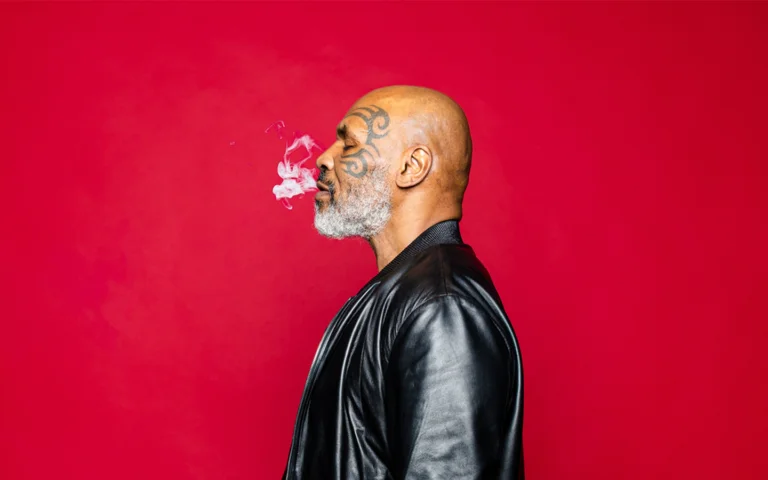Life is a worry for most, peppered with small-scale anxieties and full-on meltdowns that can rock our very existence.
While anxiety doesn’t grip everyone in the same way—or at all in some fortunate cases— there’s no doubt that the modern-day man is currently at risk.
We are amidst a mental health crisis—a worsening pandemic of the mind—with depression, substance abuse, and suicidal thoughts the leading issues at the forefront of the growing problem.
Alarming recent statistics highlight the need for intervention.
American men are at a significantly higher risk of a mental health condition like depression, than prostate cancer.
In fact, studies show that the likelihood of men experiencing depression in any given year is 28 times higher than that of prostate cancer.
This trend has become a ‘silent crisis,’ with the number of men struggling with mental health conditions rising rapidly. Research estimates that around six million men in the United States suffer from depression each year.
Interestingly, while men only experience depression at half the rate of women, they are four times more likely to commit suicide. Suicide is considered one of the leading causes of death for men, according to the Centers for Disease Control (CDC).

In the United Kingdom, a 2021 study revealed that three out of four people who take their own lives are men, while two respective 2020 studies concluded that males have higher rates of alcohol abuse than women. And, alarmingly, two in five men say they feel worried or low regularly.
Mental health issues, evidently, are a global pandemic, not an isolated sputtering exclusive to specific corners of the globe. It’s something that affects men of all demographics, backgrounds, and cultures.
Mental health does not discriminate. But why is it such a deep-rooted issue, and what do men worry about in 2023?
Muscle and Health spoke to experts and got first-hand accounts around some of the main concerns men of today go through.
Be the breadwinner
Men fear losing their jobs and the potential impact it may have on their ability to provide for their families. They worry about being replaced by someone more intelligent, educated, or skilled in an increasingly cutthroat job market.
Maurizio Petrone, Founder and CEO of Must Read Quotes, is a 40-year-old father running his remote-first startup. He believes modern men’s concerns have intensified rather than experiencing increased awareness alone.
“Finding a balance between home and work responsibilities, all while maintaining a sense of work-life balance, is a significant source of worry for many,” he told Muscle and Health.
As society’s perception of the ‘traditional’ male role continues to evolve, men often feel pressured to be fully engaged fathers while meeting their business obligations.
Petrone says: “I have constantly worried about missing out on my daughter’s milestones while managing my startup. Although remote work offers flexibility, it also comes with challenges, such as blurred work and personal life boundaries.
Another source of anxiety for men is keeping up with the rapid pace of technological changes:
“The fear of being unable to adapt or remain relevant can be overwhelming. As the CEO of my company, I often find myself navigating the digital transformation while staying informed about cybersecurity risks, which sometimes feels like walking on a high wire.”
While there’s been progress in openly discussing men’s mental health, our stressors have multiplied and evolved to align with the dynamics of a fast-paced, interconnected world.

The good news is that, along with increased awareness, resources to manage and mitigate these anxieties have also improved.
Alexander Barrera, CEO of Happy Seed Bank, agrees, believing that “men’s worries continue to evolve alongside societal norms and expectations.”
She said: “A significant concern facing modern males is the concept of masculinity and its changing definitions. Many worry about balancing traditional expectations of being the ‘breadwinner’ or ‘strong, silent type’ with modern expectations of emotional openness and vulnerability.
“This worry is often tied to the traditional role of men as providers.”
What’s love got to do with it?
Similar to women, men experience anxiety about finding a life partner. The feeling of being left behind while friends and family members have found their significant others can negatively impact their self-confidence.
This anxiety also translates into the bedroom as being a good lover and satisfying their partner sexually is a concern for many men in 2023. They worry about their skills and abilities in the bedroom, directly impacting their self-confidence and the quality of their intimate relationship.
In a nutshell, this is defined as sexual performance anxiety, a disorder caused by a range of biological and psychological factors such as body image and self-esteem issues, feeling emotionally disconnected, mental health conditions, overconsumption of pornography, and stress.
Candice Hasler, a licensed mental health counselor who treats adults with anxiety, cites that most of her male clients predominantly worry about their relationships—more specifically, with fears of abandonment or rejection.
“Do men worry more than they used to, or are we more aware today? Anxiety for men, as with the general population, is on the rise, particularly in wealthy and developed countries like our own,” Hasler revealed.
“Between the influence of social media and the mass isolation of the pandemic, more men are seeking treatment for social anxiety than we’ve seen in years past.“
Men face unique struggles when it comes to loneliness, an increasingly worrying trend which lives amongst the modern-day loneliness epidemic.
A recent study published in the American Perspectives Survey highlights that 27% of men claimed to have at least six close friends, which is only half the number compared to three decades ago.
An even more damning statistic revealed that 15% of men disclosed that they have no close friends at all, in contrast to 10% of women.
Keeping up appearances
The quest for the perfect body is relentless, fuelled by millions of ‘perfect’ images of sculpted six-packs and inhuman levels of strength. We’ve never been more exposed in terms of appearance.

Many experts believe that men these days are facing a real struggle with negative body image, and they’re pointing their finger at the mass media for this conundrum.
The comparisons we make are usually unrealistic, leading to the start of nagging concerns about our weight and muscularity, which can mess with our heads, a never-ending domino effect.
Plastic surgeon Dr Paul Banwell says that it may seem men are worrying about their appearance more in 2023. But it’s actually a good thing as they speak out about their anxieties more.
He said: “We’re lifting the taboo around ‘tweakments’ for men, and I’ve seen an increase in men coming to see me for treatments such as Brotox (a tongue-in-cheek reference to Botox for men!).
“The stigma around cosmetic procedures is diminishing for men, and ‘tweakments’ are becoming more normal. It doesn’t mean men are worrying more about their wrinkles in 2023, but it’s more the case that men want to use the treatments to boost their confidence, too.
“The stigma around procedures is definitely fading for men, and I am glad they feel confident to contact me for their treatments.”
According to The British Association of Aesthetic Plastic Surgeons (BAAPS), men made up seven per cent of all cosmetic surgery procedures in 2022- a 118 % rise from 2021.
“I have certainly seen a rise in male uptake of surgeries such as face lifts, blepharoplasty and neck lifts. I think this is down to a number of reasons—more awareness that such procedures exist, high-profile public figures talking openly about having surgery themselves, and a breakdown of the stigma that used to surround surgeries such as these.
“I hope male patients are becoming more comfortable discussing procedures openly, just like women already do.“
Hair-raising newcomer
It’s not just bodies that men are sweating over. Disturbing findings from recent research highlight the severe emotional impact of hair loss on millions of individuals in Britain.
It’s reported that an alarming one in five men and one in 20 women have contemplated suicide due to the distress caused by thinning or receding hair.
Furthermore, the survey indicates that half of all adults suffering from hair loss also struggle with mental health issues. Around 30% of individuals reported feelings of depression, while 27% highlighted experiencing anxiety as a result of their condition.
Hair transplant surgeon Mr Michael Mouzakis of Harley Street’s The Private Clinic said he’s seeing more men opening up about worrying about their appearance—particularly anxieties around hair loss.
He told Muscle and Health: “I think men have always worried about their appearance but have felt ashamed to discuss it. If a man cares about his appearance, they are often viewed as high-maintenance or too feminine.

“This just isn’t the case. Losing your hair can be very traumatic. We need to move past societal boundaries, which enforce the concept that men should not be concerned about their appearance or insecure about the way they look.
Mouzakis believes that the rise of celebrities opening up about their struggles with hair loss and having hair transplants—like Rafael Nadal and James Nesbit—allows other men to express their anxieties, too.
“Often men are still teased about losing their hair or just expected to get on with it as it’s seen as normal, but it can cause significant mental distress to many men.
“Losing your hair can cause a loss of self-confidence. Most men know very little about hair loss. Although 80% suffer from genetic hair loss. It is definitely one of the main anxieties for modern-day males.
“But because more men are prepared to talk about it, they are also prepared to look for solutions. Hair restoration surgery has come on dramatically in recent years and has become more popular and successful.”
The average age of patients Mouzakis sees for a hair transplant is 35.5 years, and 98% of these patients report that their hair transplant surgery has significantly improved their confidence and self-esteem.
“Men need to open up a conversation around hair loss and that it isn’t something to be embarrassed about. Men shouldn’t be ashamed to investigate it and have a hair transplant. While it might appear that men are worrying more than they used to, it’s more that they feel comfortable discussing their anxieties, such as hair loss.”






